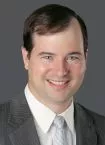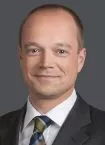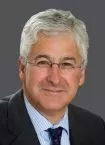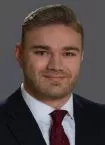Other Author: Oliver Jones, Trainee Solicitor
On 20 December 2023, the UK Supreme Court unanimously held that UK patent legislation does not permit an AI system to be named as the "inventor" in a patent application. In doing so, the UK Supreme Court reaffirmed earlier findings from the UK courts and UK Intellectual Property Office ("UKIPO") that a patent's inventor must be a natural person.
The UK Supreme Court's decision is the latest in a series of decisions where national courts and patent offices have considered whether AI systems can be named as the inventor of a patent application in their given jurisdiction. Consistent with the UK Supreme Court's decision, the United States Patent and Trademark Office ("USPTO") and US federal courts, as well as the European Patent Office ("EPO") and the German Federal Patent Court ("FPC"), have concluded that patent law does not allow for the listing of AI as an inventor on a patent application.
The judgment does not preclude human inventors from using AI systems as tools to devise inventions, indeed the UK Supreme Court's judgment notes that "in this jurisdiction it is not, and never has been Dr Thaler's case that he was the inventor and used DABUS as a highly sophisticated tool. Had he done so, the outcome of these proceedings might well have been different." However, when seeking to obtain patents at the UKIPO it is essential that the inventor is a natural person. The UK Supreme Court's judgment and press summary can be found here: https://www.supremecourt.uk/cases/uksc-2021-0201.html
Background to the UK Supreme Court Decision
In 2018, Dr Stephen Thaler submitted two GB patent applications to the UKIPO. During the patent application process, the UKIPO requested that Dr Thaler file a statement of inventorship for the claimed inventions. When filing the requested statements of inventorship, Dr Thaler asserted that the claimed inventions had been created by an autonomous, AI powered machine called DABUS, which he owned. Dr Thaler also asserted that he had the right to the grant of the respective patents given that he was the owner of the DABUS machine.
In December 2019, the Hearing Officer for the Comptroller-General of Patents ("Hearing Officer") refused Dr Thaler's GB patent applications on the basis that they were non-compliant with the UK Patents Act 1977 (the "Act"). In particular, the Hearing Officer found that the Act's provisions governing the right to apply for and obtain a patent require the invention to be devised by an "inventor" and that DABUS, as a machine, did not qualify as such.
Dr Thaler subsequently unsuccessfully appealed the Hearing Officer's decision, initially at the UK High Court and later at the UK Court of Appeal. Each time the UK courts found that DABUS, as a machine and not a person, could not be an "inventor" under the Act. Following the UK Court of Appeal's decision, Dr Thaler was granted further permission to appeal to the UK Supreme Court.
UK Supreme Court Decision
The outcome of the UK Supreme Court's judgment turned on the following three issues:
Issue 1: the scope and meaning of the term "inventor" in the 1977 Act.
The UK Supreme Court concluded that the applicable sections of the Act – specifically sections 7 and 13 – allow for one meaning of the term "inventor", namely that an inventor must be a natural person i.e. a human being. DABUS could therefore not be the inventor of any new product or process described in the GB patent applications.
Interestingly, in reaching its decision the UK Supreme Court had also considered a submission by the UK Institute of Patent Attorneys – which was broadly aligned with a dissenting judgment in the UK Court of Appeal – which was to the effect that the fact that Dr Thaler stated on the application that he believed the inventor was a machine should have been no impediment to the grant of a patent to Dr Thaler.
Issue 2: was Dr Thaler nevertheless the owner of any invention in any technical advance made by DABUS and entitled to apply for and obtain a patent in respect of it?
The UK Supreme Court concluded that Dr Thaler could not apply for or obtain the patents which were subject to the applications by virtue of Dr Thaler's ownership of DABUS. Although the Act contains instances in which a non-inventor can obtain ownership of a patent, all such instances require at least one inventor to have been previously established. In the context of the DABUS patent applications, the UK Supreme Court had established that DABUS could not be an inventor, and therefore there was no basis through which Dr Thaler could claim to have obtained any rights in any patent application under the Act.
The UK Supreme Court also rejected Dr Thaler's arguments that he had acquired the right to apply for and obtain the patents through the doctrine of accession on the basis that as the owner of DABUS, any rights in new property derived from DABUS would be owned by Dr Thaler. In rejecting this accession argument, the UK Supreme Court acknowledged that an invention did not amount to tangible property such that title to it can pass to the owner of the machine who generated the invention.
Issue 3: was the Hearing Officer entitled to hold that the applications would be taken to be withdrawn?
The UK Supreme Court decided that the Hearing Officer was ultimately entitled to determine that the applications would be taken to be withdrawn at the expiry of the 16-month period, as set out in Rule 10(3) Patent Rules 2007.
US Approach
Like the UK Supreme Court deciding that under UK patent legislation "an inventor must be a natural person" US federal courts have concluded that statutory language in the United States forecloses the listing of artificial intelligence (AI) as an inventor. Thaler v. Vidal, 43 F.4th 1207, 1210 (Fed. Cir. 2022), cert. denied, 143 S.Ct. 1783 (2023). The Thaler court explained that "there is no ambiguity: the Patent Act requires that inventors must be natural persons; that is, human beings." Id. The court based its ruling on portions of the statute that referred to inventors as "individuals." After acknowledging that the US patent statute did not define that term, the court looked to US Supreme Court precedent that makes clear that the term "individual" refers to a human being unless the US Congress indicated otherwise in a statute using the term. Id. at 1211.
While the Thaler court clarified that AI cannot be listed as an inventor, it expressly noted that it was not confronted with the issue of whether inventions made by a human being with the assistance of AI are eligible for patent protection. Id. at 1213. A question remains as to how US law will treat a patent application if AI contributes in some significant manner to the conception or its reduction to practice such that, had a human being made that contribution, that person would be listed as a joint inventor. We expect that the USPTO will provide insight on this situation in the AI guidance it must provide by February 2024 based upon President Biden's Executive Order. See Section 5.2(c)(i) Executive Order on the Safe, Secure, and Trustworthy Development and Use of Artificial Intelligence (Oct. 30, 2023). But that will only be the USPTO's view, and should an applicant disagree with the manner by which the USPTO handles such a situation, it may seek review by a federal court.
EPO and German Approach
The provisions of sections 7 and 13 of the UK Patents Act 1977, which were considered by the UK Supreme Court in reaching the decision for the UK, are not among the provisions introduced into UK patent law to assimilate the European Patent Convention ("EPC") into the UK, so it is not inevitable that the approach of the EPO and the other national patent offices of the EPC member states would be the same as in the UK. However, the EPO has also refused the equivalent application made by Dr Thaler, at first instance and at the Boards of Appeal ("BoA"). An appeal to the Enlarged Board of Appeal was refused.
Like the UK Supreme Court, the BoA of the EPO held that "the designated inventor has to be a person with legal capacity" (decisions of December 21, 2021, J 0008/20 – Designation of inventor/DABUS and J 0009/20 – Designation of inventor/DABUS II, each at 4.3.1). According to the BoA of the EPO, the purpose of the provisions dealing with the inventor and its designation were "primarily to confer and to protect rights of the inventor [...], to facilitate the enforcement of potential compensation claims provided under domestic law, and to identify a legal basis for entitlement to the application." Id. at 4.3.3. Designating a machine without legal capacity would serve neither of these purposes. Id. at 4.3.3.
While the BoA of the EPO clarified that a machine could not be designated as the inventor, it explicitly stated that patentable inventions were "not limited to human-made inventions". Id. at 4.6.2. In the European patent system, it did not matter how the invention was made. Therefore, it was "arguable that AI-generated inventions too are patentable". Id. at 4.6.2.
Other EPC member states, such as Germany, have taken a similar approach. According to the FPC, only natural persons may be designated as inventors ( decision of November 11, 2021 – 11 W (pat) 5/21 and decision of June 21, 2023 – 18 W (pat) 28/20). The requirements to designate an inventor were intended to protect the inventor's personality rights, which a machine does not have. However, if an invention was conceived by a machine (here: DABUS), the FPC did not exclude that the persons operating the software could be considered as inventors. Interestingly, in decision 11 W (pat) 5/21, the FPC allowed the (human) inventor to be named with the additional indication "who caused the artificial intelligence DABUS to generate the invention", which was rejected in decision 18 W (pat) 28/20.
Where does this leave patentability of AI generated inventions?
Whilst the US, the UK and the EPO patent systems date from an era when AI generated inventions were not seriously imagined, and the applications filed by Dr Thaler have failed for the absence of a human inventor, the clear guidance in the US, the UK, the EPO and Germany is that these decisions are "without prejudice" to the possibility of patents being granted to human inventors who use AI as a "sophisticated tool", possibly even in cases where the AI was solely or almost exclusively responsible for inventing. For the moment, however, attribution of human inventorship remains the filing requirement across these major patent filing jurisdictions.
Visit us at mayerbrown.com
Mayer Brown is a global services provider comprising associated legal practices that are separate entities, including Mayer Brown LLP (Illinois, USA), Mayer Brown International LLP (England & Wales), Mayer Brown (a Hong Kong partnership) and Tauil & Chequer Advogados (a Brazilian law partnership) and non-legal service providers, which provide consultancy services (collectively, the "Mayer Brown Practices"). The Mayer Brown Practices are established in various jurisdictions and may be a legal person or a partnership. PK Wong & Nair LLC ("PKWN") is the constituent Singapore law practice of our licensed joint law venture in Singapore, Mayer Brown PK Wong & Nair Pte. Ltd. Details of the individual Mayer Brown Practices and PKWN can be found in the Legal Notices section of our website. "Mayer Brown" and the Mayer Brown logo are the trademarks of Mayer Brown.
© Copyright 2024. The Mayer Brown Practices. All rights reserved.
This Mayer Brown article provides information and comments on legal issues and developments of interest. The foregoing is not a comprehensive treatment of the subject matter covered and is not intended to provide legal advice. Readers should seek specific legal advice before taking any action with respect to the matters discussed herein.









